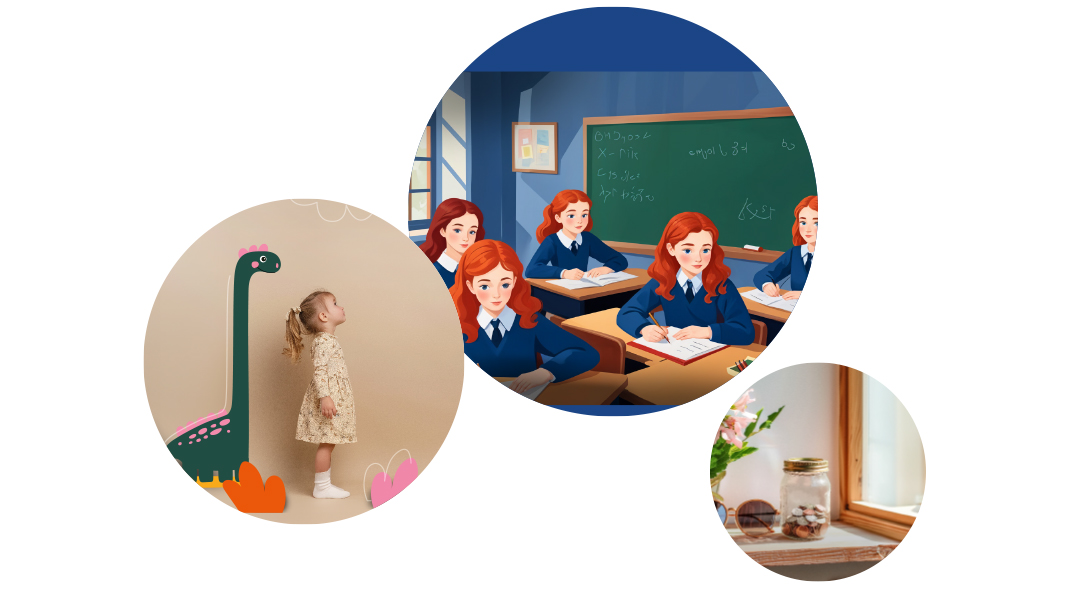Family First Inbox: Issue 868

“Let’s be gentle with one another. Everyone else is attacking us. We don’t need to attack each other”

We’re Not Lying [Real Life / Issue 867]
When I read the "bombshell" in this past week’s Tempo// Real Life story — where the narrator’s friend admitted she had invented allegations of abuse to win her new friend’s sympathy — I threw down my magazine. I tried to finish the story but found myself incapable.
While I understand the point of the story was toxic friendships, manipulation, and the sort, the choice of sharing these details was regrettable (I’m couching my words here).
Survivors of abuse have a hard enough time reaching out for help. One of the biggest concerns is, “Who will believe me?” And these fears are unfortunately not unfounded. People have a very difficult time believing victims for a multitude of reasons, and thanks to this story, they have another — they might just be lying for attention.
Using abuse as a detail in a story minimizes the suffering for abuse victims as well as gives them further pause to come forward.
In addition, the narrator muses, “I didn’t know what to think. In all my visits to Penina’s house, I never noticed anything dysfunctional.” This perpetuates the lie that abuse is something readily discernible and only happens in dysfunctional homes. Unfortunately, abuse can happen in the best, most choshuve, most loving and functional homes.
You can’t take back what was printed, but please be more responsible in the future.
A Survivor
Looking Forward [I Am Buba / Issue 866]
I’m writing to let you know how much I enjoyed “I Am Buba” by Hanna Green, about how she was able to read, reread, and reread books to her grandchildren because she didn’t have to do the chores a mother is usually busy with. I found it extremely validating, as I’m a busy mother and don’t have the same amount of time Hanna Green has to spend with my children.
I always wondered what was wrong with me. No longer do I feel guilty. I realize that busy mothers don’t always have as much time as they’d like to spend with our children, and that is something we can look forward to doing as we get older.
Not having enough time doesn’t mean we’re bad mothers. It means we have so much on our minds and so much to accomplish and so much that we are accomplishing. As long as our children know that we’re doing it all for them, and they feel our love, that is enough. At this point in our life, we can focus more on the quality, and can look forward to focusing on the quantity when we’re bubbies, im yirtzeh Hashem!
Thank you so much, Hanna.
A Mama
Look Beyond Symbolic Acts [From the Home Front / Issue 866]
As we all search for ways to respond to the harrowing matzav in Eretz Yisrael, I felt compelled to share my perspective after reading the recent article in which six women discussed adjusting their daily comforts, and those of their children, in solidarity with our brothers and sisters facing war and terror. While their intentions are commendable, I believe this approach is misguided.
Denying oneself a comfort we’re used to, like a second pillow or a favorite treat, does little to aid our fellow Yidden. This form of deprivation doesn’t lighten their burden; instead, it’s a symbolic act that lacks practical impact. Our Torah instructs us that davening and increasing Torah and mitzvos is the true path to making a difference. These actions bring light into the darkened world we’re witnessing. As we go about our regular routine, we must look out for the infinite opportunities to add mitzvos into our days and keep the matzav in mind. Additionally, we must upgrade the mitzvos that we are already doing with increased passion and meticulousness.
Instead of forbidding your daughter from going out for iced coffee because her fellow Yidden are suffering, encourage her to take advantage of the gathering of friends to say a perek of Tehillim together. Have your daughter mention to her friends to have extra kavanah on the brachah before they take a sip of delicious iced coffee. Instead of berating your daughter who feels she needs new clothes, send her shopping with a reminder that, as a zechus for her brothers and sisters in tzarah, she should be extra cognizant that each of her purchases are tzniyusdig, perhaps at a higher standard than she’s usually accustomed to.
We may not be on the front lines with guns and tanks, but we can and must tap into our not-so-secret weapon, accessible in our daily routines: another Shemoneh Esreh, a thoughtful word, increased tzedakah, refraining from lashon hara, learning relevant halachos, and extending patience to our children. The opportunities are endless.
Instead of inflicting pain on ourselves in the “merit” of our brothers and sisters, let us turn the focus to lessening their burden by fighting the war with them, using the priceless, infinite power of our mitzvos. And with that, may we merit to see the end to the suffering and greet Mashiach speedily in our days!
Miriam Mintz
Serve Him Where He Placed You [From the Home Front / Issue 866]
I wanted to respond to the panel of women who didn’t seem to know what to do with their heavy feelings. It’s important to realize that limiting your media exposure and being nosei b’ol are not mutually exclusive.
I am one of the readers who threw out the first Mishpacha after browsing it. The picture of Savta being kidnapped, along with the hauntingly beautiful article, were too much for me to face at that time. I desperately wanted to hear people’s experiences, but I couldn’t read about them.
Some people derive meaning from delving into the horror. Others become paralyzed. Everyone processes things differently — one can actually traumatize oneself by pondering the atrocities. While we are sheltering ourselves from the news, my family is very aware that there is a war and we are staying involved to a degree that is right for us.
Here are some ways that our family is being nosei b’ol:
- Reducing sweetener in our daily coffee.
- Taking cooler showers than usual (doing this tangibly reminds me about the soldiers who are lucky if they get one shower a week, the displaced families, and of course, the heiliger hostages).
- Not turning on music (this is not an intentional practice, but every time I go to turn on music, it doesn’t feel right)
- Saying Tehillim around the clock, as well as on our block chat. Some days it’s two perakim, some days it’s 100.
- I have a list of names of the hostages. I can only read it when I have the wherewithal. But I keep it in my Tehillim at all times.
- Helping financially and logistically with tactical gear.
- Donating clothing and, of course, money.
- Listening to uplifting and fascinating updates from an army officer/rabbi.
- Listening to and attending shiurim.
- Making pictures for soldiers (kids).
- Encouraging the kids to say brachos and Tehillim.
- Participating in a toy drive (my 11-year-old really enjoyed going on a shopping spree, the likes of which he will never get!).
- Singing Acheinu after Shema every night with my four-year-old (this is probably my most heartfelt tefillah of the day!).
Let us recognize that we are all called upon to continue our daily lives. Any (difficult) challenges that we had before the war have not disappeared. We need strength to go about our days, to parent our children, to continue serving Hashem in our own circumstances. We need to serve meals, put children to sleep. Are our children sleeping well at night? Are we?
Let’s be gentle with one another. Everyone else is attacking us. We don’t need to attack each other. Be nosei b’ol. Help any way you can. Daven and daven and daven. And serve Hashem where He placed you.
Thank you,
CS
Get Busy — with Growth [From the Home Front / Issue 866]
Kudos for the beautiful piece featuring the panel of women hashing out their aspirations around the matzav in Eretz Yisrael. I wanted to share three ideas that occurred to me as I read it.
- This concept of friends sitting together discussing ruchniyusstruggles in a very real, practical, open way is incredible. We all need this in our lives! The ability to hold an open, unabashed conversation about real, spiritual topics — where everyone makes themself vulnerable and defies that “weird” or “socially off” feeling of getting into an authentic conversation — is priceless. If my understanding of “k’neih lecha chaver” is correct, this is precisely why Chazal told us to get friends — so we can benefit from each other’s ideas, perspectives, care, and support to grow spiritually. Business owners pay steep prices to join masterminds, peer groups helping each other grow their businesses with support, peer input, and the accountability of healthy peer pressure. I would pay if I could find a group of frum women peers ready to build sincere friendships based on focused discussions about practical avodas Hashem.
- At the same time, I wonder if these women thought about approaching a spiritual mentor, whether a rav or female figure, for guidance. Assuming they actually have such an address to turn to, doing so (in addition to the peer discussion) would unquestionably provide some measure of clarity going forward.
- Though I’m no rav or rebbetzin, I wanted to throw my own two cents into their pool of insights. Much of their discussion focused on how we should be feeling, how much we should interrupt or tone down our normal lives, etc. This sincere desire to be nosei b’ol is beautiful and important, and definitely has a place. But I think we might have missed the point. Instead of focusing entirely on not being happy or not having fun, maybe we should focus on yes getting busy with growth in avodas Hashem.
We all know where we personally need to grow, and/or where we personally can contribute spiritually. Let’s get busy doing it. Get busy davening more, with more kavanah. Get busy working on that relationship issue you’ve been struggling with, whether it’s with your spouse, your parent, or your kids. Get busy learning hilchos Shabbos or something on bitachon. Get busy bringing joy to sad or lonely people you know. Get busy raising money for displaced or suffering people in Eretz Yisrael. And instead of worrying about your kids for their shallow or seemingly careless attitudes, bring them into your busy-ness. Get them into the kitchen doing hafrashas challah with you b’zechus those suffering. Do a (non-mandatory) family activity where you decorate letters or pack boxes for families of reservists. Do that learning out loud when they’re around, so they see what you’re doing and why you’re doing it. Offer to do it with them. Get vulnerable with them about your conflicted thoughts and feelings about reacting to the matzav.
Hashem doesn’t want us simply to be sad. Hashem wants us to grow closer to Him, and to help His children. Let’s get busy doing that! Eventually, as we become more elevated people, the proper feelings will follow naturally.
M.N.
Get a Coach [Game Plan / Issue 866]
I enjoyed Racheli Lebovics’s engaging story, and I was happy that Tamar finally decided to do something about her absentmindedness and distractibility, and buy some books. What I would like to tell Tamar — and any reader who identifies with her — is this:
Honey, books aren’t going to hack it. Relying on yourself to remember to read the books and implement their advice is clearly outside your skill set. For the sake of your marriage and your own future happiness, you need the structure, strategies, and accountability of a time-management coach (and possibly an evaluation for ADHD).
Name Withheld
Show Them They Belong [One of Us / Issue 862]
I had tears in my eyes as I read Batsheva Kirsch’s article describing her hoping and wishing that her son, who had come to shul without his father, would feel part of the dancing and joy in their shul on Simchas Torah. As a single mom, I, too, found myself davening for precisely those same things.
“Hashem, please, my son should have someone to dance with, someone that will make him feel part of the community, show him what a happy day this is for all Jewish daddies and little guys (and of course the mommies squashed behind the mechitzah as well...), and not, G-d forbid, a day where all that he is missing in his life is highlighted, as he gets the message that he has no place in the community.
I found it ironic that in the main magazine, there was a full article about the Lev Teen House in Monsey, which caters to a clientele of young men that for the most part dropped out of living a Jewish lifestyle because they didn’t feel wanted and part of their community.
Brothers and sisters! Please!
If you know of someone in your community who doesn’t have a father, if you can reach out to his mother in advance of Simchas Torah and say, “I’d love the zechus of dancing with your son for hakafah one through four” or whatever it is that you can offer, it can make a world of a difference
On this past Simchas Torah, a very kind neighbor of mine actually invited my son to his house and danced with him, just him and some of his children. The joy and pride that shone on my son’s face was incredible to watch. It’s so easy to make people feel good, to make them feel wanted and show them that they belong.
Let’s change this.
Together.
Name Withheld
(Originally featured in Family First, Issue 868)
Oops! We could not locate your form.







